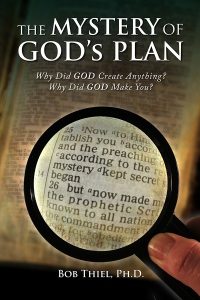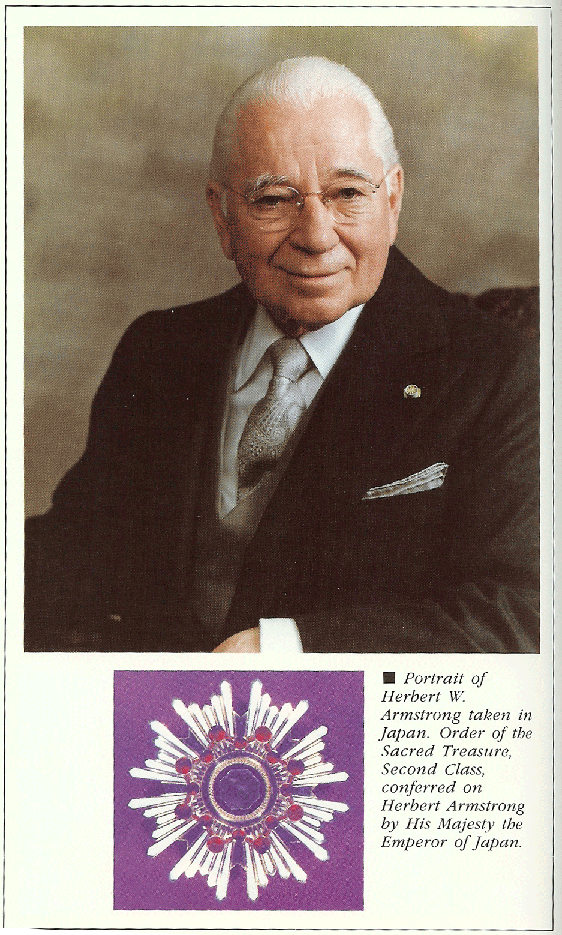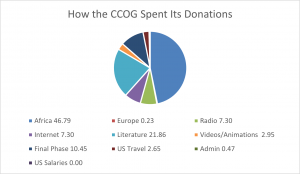Why are people different size wise, race wise, etc.?
Thursday, April 25th, 2024Some wonder why would God make people to be different races? Why different hair colors? Why do people come in different sizes?
One obvious reason was so that people would look different from each other, which makes identifying a particular person easier in a group.
Is there another bigger reason that is part of God’s plan?
Yes.
But before getting to that, let’s consider, for for a moment, the theory of evolution. Here is how humans try to explain the mystery of races.
Over some vast period of time, climate affected humans. Supposedly the African CLIMATE influenced the selection of color in the skin and hair, and the shape of the nose and skull of those inhabiting that region. The fittest and the blackest survived, say evolutionists, because they could better withstand the sun’s rays. Supposedly, those in tropical Africa became constantly blacker, according to this theory, just as people in cooler Europe supposedly became constantly whiter by natural selection! Proof for this? — there is none. It is only a theory. It is wishful thinking. IT IS NOT TRUE.
Consider that climate or other factors in the environment may tan one’s skin, but this sun tan is not inherited. Acquired characteristics are not inherited. Just because male Jews are circumcised does not mean that Jewish boy babies will be born circumcised! Climate did not cause the change of color of an African’s skin to black. Neither could natural selection make an African black. Natural selection could do no more than choose what already existed. Darwin’s theory of natural selection can not bring anything new into existence.
The Bible even asks:
13 Does a Cushite change his skin? (Jeremiah 13:23, LSV)
The answer is no.
What are Cushites?
Darker skinned people who often inhabited parts of Africa–most still do, though many can be found around the world. They are descendants of Noah’s son Ham:
The black race is composed of some of the descendants of Noah’s son Ham. Part of the black race stems from Cush (Gen. 10:6). Cush means black in Hebrew (Young’s Concordance). …
Of the four sons of Ham, only Cush bears a name which means “black.” Just as some of the sons of Cush are brown so some of the children of Phut are black. (The Development of The Races. Ambassador College, 1968)
Anyway, you cannot change your race.
We Are ALL Part of the Human Race.
All people are part of the human race.
We all descended from Adam and Eve, and then later from the descendants of Noah’s son’s and their wives.
Notice something related to the first:
20 And Adam called his wife’s name Eve, because she was the mother of all living. (Genesis 3:20)
While there were hominids of various types before Adam and Eve, all modern humans descended from Adam and Eve–so, yes, we are all part of the human race, from the family of Adam and Eve.
The New Testament mentions “mystery among the Gentiles” (Colossians 1:27).
The first place we encounter the term Gentiles is in Genesis 10.
That chapter shows that after the flood, Noah’s children moved to different places and were the progenitors of the different races:
1 Now this is the genealogy of the sons of Noah: Shem, Ham, and Japheth. And sons were born to them after the flood.
2 The sons of Japheth were Gomer, Magog, Madai, Javan, Tubal, Meshech, and Tiras. 3 The sons of Gomer were Ashkenaz, Riphath, and Togarmah. 4 The sons of Javan were Elishah, Tarshish, Kittim, and Dodanim. 5 From these the coastland peoples of the Gentiles were separated into their lands, everyone according to his language, according to their families, into their nations. (Genesis 10:1-5, NKJV throughout unless otherwise noted)
6 The sons of Ham were Cush, Mizraim, Put, and Canaan. 7 The sons of Cush were Seba, Havilah, Sabtah, Raamah, and Sabtechah; and the sons of Raamah were Sheba and Dedan. … 13 Mizraim begot Ludim, Anamim, Lehabim, Naphtuhim, 14 Pathrusim, and Casluhim (from whom came the Philistines and Caphtorim). … 20 These were the sons of Ham, according to their families, according to their languages, in their lands and in their nations. (Genesis 10:6,13,20)
21 And children were born also to Shem, the father of all the children of Eber, the brother of Japheth the elder. 22 The sons of Shem were Elam, Asshur, Arphaxad, Lud, and Aram. … 31 These were the sons of Shem, according to their families, according to their languages, in their lands, according to their nations. (Genesis 10:21-22,31)
All the races we now have came from Noah’s sons and their wives. That would be the three primary, as well as numerous mixed races.
You do not change your race.
Many people live in countries where their race dominates. They learn various lessons.
Some people live in countries where their race is highly discriminated against. They learn various lessons.
Some people live in countries more accepting of multiple races. They learn various lessons.
And there are variations among those scenarios, which partially result in learning various lessons.
What about changing your height after you have grown up?
No, short of modern surgical techniques, you cannot.
Furthermore, Jesus taught:
27 Which of you by worrying can add one cubit to his stature? (Matthew 6:27)
Now, some may say it is more difficult to live if you are a certain race, height, weaker, etc.
And in some ways that is true.
Yet, that is part of the plan:
27 But God has chosen the foolish things of the world to put to shame the wise, and God has chosen the weak things of the world to put to shame the things which are mighty; (1 Corinthians 1:27)
Furthermore, the Bible tells those who will follow God will be able to handle it:
13 No temptation has overtaken you except such as is common to man; but God is faithful, who will not allow you to be tempted beyond what you are able, but with the temptation will also make the way of escape, that you may be able to bear it. (1 Corinthians 10:13)
One race, hair color, size, etc. is not superior, so people should not think that is so.
The Bible also teaches:
12 Therefore let him who thinks he stands take heed lest he fall. (1 Corinthians 10:12)
Hence, the Bible does not teach black, white, or other supremacy.
As far as supremacy goes, the Bible teaches:
6 … God and Father of all, who is above all (Ephesians 4:6)
The Bible is clear that there is no salvation difference between those who are Jewish physically and those that are not:
26 For you are all sons of God through faith in Christ Jesus. 27 For as many of you as were baptized into Christ have put on Christ. 28 There is neither Jew nor Greek, there is neither slave nor free, there is neither male nor female; for you are all one in Christ Jesus. 29 And if you are Christ’s, then you are Abraham’s seed, and heirs according to the promise. (Galatians 3:26-29)
9 Do not lie to one another, since you have put off the old man with his deeds, 10 and have put on the new man who is renewed in knowledge according to the image of Him who created him, 11 where there is neither Greek nor Jew, circumcised nor uncircumcised, barbarian, Scythian, slave nor free, but Christ is all and in all. (Colossians 3:9-11)
11 For there is no partiality with God. (Romans 2:11)
28 For he is not a Jew who is one outwardly, nor is circumcision that which is outward in the flesh; 29 but he is a Jew who is one inwardly; and circumcision is that of the heart, in the Spirit, not in the letter; whose praise is not from men but from God. (Romans 2:28-29)
The above is also proof that those that are not racially of Israelite heritage are not less worthy in God’s sight either.
God has a plan which will result in people of every nation and race will be saved:
29 They will come from the east and the west, from the north and the south, and sit down in the kingdom of God. (Luke 13:29)
9 … I looked, and behold, a great multitude which no one could number, of all nations, tribes, peoples, and tongues, standing before the throne and before the Lamb, clothed with white robes, with palm branches in their hands, 10 and crying out with a loud voice, saying, “Salvation belongs to our God who sits on the throne, and to the Lamb!” (Revelation 7:9-10)
Those of all nations, tribes, peoples, and tongues show that the various varieties of people will be saved.
That being said, why the varieties?
Well, that tends to result in people having different sets of experience.
But what about individuals, not just sets of people?
Well, God’s plan takes into account what has happened to you. Notice Old Testament teachings related to that:
11 The counsel of the Lord stands forever, The plans of His heart to all generations. 12 Blessed is the nation whose God is the Lord, The people He has chosen as His own inheritance. 13 The Lord looks from heaven; He sees all the sons of men. 14 From the place of His dwelling He looks On all the inhabitants of the earth; 15 He fashions their hearts individually; He considers all their works. (Psalm 33:11-15)
1 For I considered all this in my heart, so that I could declare it all: that the righteous and the wise and their works are in the hand of God. (Ecclesiastes 9:1a)
9 A man’s heart plans his way, But the Lord directs his steps. (Proverbs 16:9)
24 A man’s steps are of the Lord; How then can a man understand his own way? (Proverbs 20:24)
73 Your hands have made me and fashioned me; (Psalm 119:73)
17 … “God shall judge the righteous and the wicked, For there is a time there for every purpose and for every work.” (Ecclesiastes 3:17)
Notice, now, passages in the New Testament:
11 But the one and the same Spirit is operating in all these things, dividing separately to each one as God Himself desires. … 27 Now you are the body of Christ, and you are all individual members. (1 Corinthians 12:11, 27, AFV)
7 Do not be deceived, God is not mocked; for whatever a man sows, that he will also reap. 8 For he who sows to his flesh will of the flesh reap corruption, but he who sows to the Spirit will of the Spirit reap everlasting life. (Galatians 6:7-8)
10 For God is not unjust to forget your work and labor of love which you have shown toward His name … (Hebrews 6:10)
God has a plan for ALL! That includes YOU INDIVIDUALLY whether you are called in this age or not. And He considers ALL OF YOUR WORKS.
All that you have been through, all that you have suffered, all of which you accomplished, etc. is preparing YOU to make eternity better (unless you will ultimately refuse to support God’s Kingdom). Everything you have been through has been preparing you for the calling and work God has for you! YOU will be able to give in a unique way and help make eternity better!
The Bible mentions that just like the body has parts like hands and eyes and parts for smelling, hearing, and other things all in the body have a role:
14 For in fact the body is not one member but many.
15 If the foot should say, “Because I am not a hand, I am not of the body,” is it therefore not of the body? 16 And if the ear should say, “Because I am not an eye, I am not of the body,” is it therefore not of the body? 17 If the whole body were an eye, where would be the hearing? If the whole were hearing, where would be the smelling? 18 But now God has set the members, each one of them, in the body just as He pleased. 19 And if they were all one member, where would the body be?
20 But now indeed there are many members, yet one body. 21 And the eye cannot say to the hand, “I have no need of you”; nor again the head to the feet, “I have no need of you.” 22 No, much rather, those members of the body which seem to be weaker are necessary. 23 And those members of the body which we think to be less honorable, on these we bestow greater honor; and our unpresentable parts have greater modesty, 24 but our presentable parts have no need. But God composed the body, having given greater honor to that part which lacks it, 25 that there should be no schism in the body, but that the members should have the same care for one another. (1 Corinthians 12:14-25)
Notice that one of the reasons for having differences is so that we can have the same care for another–that means differences are intended to help us give love in different ways.
We all have our unique part in the eternal plan God has. Yes, your role could be quite different from the other billions of humans—don’t think God does not have a real plan for YOU.
Furthermore, you are accountable for what you do (Romans 14:12). God will judge based on what you do (Ecclesiastes 12:14; Revelation 20:12) as well as what you fail to do (Matthew 25:24-30). The more you do what you should do, the more you will make eternity better for your own self and others. The more you do not do what you should not do, you will make eternity better for your own self and others. God is a righteous judge (2 Timothy 4:8).
The Bible teaches that we shall be rewarded according to our works (Matthew 16:27; Romans 2:6; Proverbs 24:12; Jeremiah 17:10; Revelation 22:12)! And we will be able to help more people because of that (cf. Luke 19:15-19). The Bible says that after death, our works follow us (cf. Revelation 14:13)—which basically means that what we learned and developed, while physical, will shape how we will be able to give and work throughout eternity.
Everything God has done He has had a reason for (Ezekiel 14:23), including the length of our lives, which is usually a mystery for us (cf. Ecclesiastes 9:12).
God made people of various colors all to be part of the one body (Romans 12:4-5; 1 Corinthians 12:12-14).
All will have an opportunity for salvation.
All who accept that offer will be able to give love in a unique way to make eternity better for themselves and everyone else (see also the free online book The MYSTERY of GOD’s PLAN: Why Did God Create Anything? Why Did God Make You?).
Racial variety in this age, will result in more love in more ways in the future Kingdom of God.
That is why there are multiple races, hair colors, body sizes, etc.
Related to these matters, we put together the following video:
Mystery of Race
Where did the various races come from? Did they evolve? If God created them, why? What is a Cushite? Is one race superior to any other? Why are people different shapes and sizes and with different hair color, etc.? Were Adam, Eve, Noah, Noah’s children and their wives involved? From whom did coastal people descend according to Genesis 10? Why are some weaker and others not? What is the purpose of multiple races? How could this be part of God’s plan? Does God have a plan for each INDIVIDUAL?
Here is a link to our video: Mystery of Race.
Some items of possibly related interest may include:
The MYSTERY of GOD’s PLAN: Why Did God Create Anything? Why Did God Make You? This free online book helps answers some of the biggest questions that human have, including the biblical meaning of life. Here is a link to three related sermons: Mysteries of God’s Plan, Mysteries of Truth, Sin, Rest, Suffering, and God’s Plan, Mystery of Race, and The Mystery of YOU.
Why Were You Born? Why did God make you? Herbert W. Armstrong wrote this as a booklet on this important subject. You may also wish to read the article What is Your Destiny? or watch the video, also titled What is Your Destiny?
Building Character: Going on to Perfection Once you have accepted Jesus, do you need to strive for perfection and build character? A related video sermon is available: Going on to perfection and building character.
What is the Meaning of Life? Who does God say is happy? What is your ultimate destiny? Do you really know? Does God actually have a plan for YOU personally? If you would like to watch videos covering subjects of this article, you can click on the following links: Why YOU? Why Do YOU Suffer? and What is the meaning of your life?
Biblical Keys to Happiness This is an article for those interested in biblical teachings about being happy. A related sermon is available and is titled: 14 Biblical Keys to Happiness.
COGwriter Position on Other Churches and Religions What is the fate of those who do not know Christ? What about those who profess Christ outside the Church of God?
Universal OFFER of Salvation, Apokatastasis: Can God save the lost in an age to come? Hundreds of scriptures reveal God’s plan of salvation Will all get a fair chance at salvation? This free book is packed with scriptures showing that God does intend to offer salvation to all who ever lived–the elect in this age, and the rest in the age to come. Here is a link to a related sermon series: Universal Offer of Salvation 1: Apocatastasis, Universal Offer of Salvation 2: Jesus Desires All to be Saved, Mysteries of the Great White Throne Judgment (Universal Offer of Salvation part 3), Is God Fair, Will God Pardon the Ignorant?, Can God Save Your Relatives?, Babies, Limbo, Purgatory and God’s Plan, and ‘By the Mouth of All His Holy Prophets’.
Why Does Man Suffer? Herbert Armstrong gives biblical reasons on this topic. I also wrote and added a section titled Suffering Has a Future Purpose.
Why Does God Allow Suffering? This is a pdf booklet put out by the old Worldwide Church of God that also answers questions about why God allows war as well as babies to die. Here is a link to a sermon titled Why YOU? Why Do YOU Suffer?
Human Nature: Good or Evil? a Did God create humans evil or good? What is human nature? Where does it come from? Here are links to two related sermons: Human Nature: Its Cause and Solution and Human Nature: Where Did it Come From?
Is God Calling You? This booklet discusses topics including calling, election, and selection. If God is calling you, how will you respond? Here is are links to related sermons: Christian Election: Is God Calling YOU? and Predestination and Your Selection. A short animation is also available: Is God Calling You?
Christians: Ambassadors for the Kingdom of God, Biblical instructions on living as a Christian This is a scripture-filled booklet for those wishing to live as a real Christian. A related sermon is also available: Christians are Ambassadors for the Kingdom of God. Here is a video in Spanish: ¿Qué es un verdadero cristiano?



















